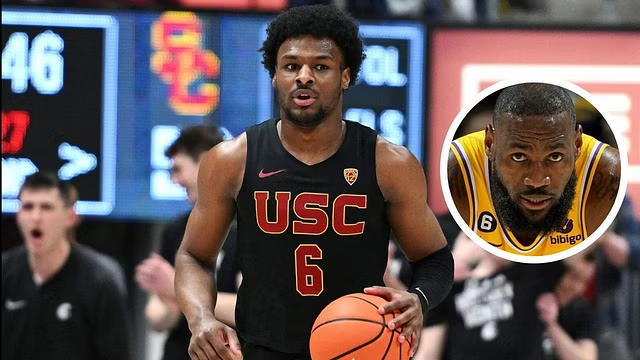The debate between merit and nepotism in sports, particularly in the case of LeBron James advocating for his son Bronny to play basketball for the United States, raises complex ethical considerations.

On one hand, meritocracy argues that athletes should be selected based purely on their skills, dedication, and achievements. This ensures fairness and rewards those who excel through hard work and talent alone. In the context of national teams, representing one’s country should ideally be a merit-based privilege, earned through rigorous competition and proving oneself against the best.
Nepotism, on the other hand, involves favoring individuals based on familial connections rather than their inherent abilities. In sports, this can undermine the principles of fair competition and potentially exclude more deserving athletes who have earned their place through competitive trials and performance evaluations.
LeBron James, as a highly influential figure in basketball, advocating for his son to play for the national team could be seen as a form of nepotism, potentially bypassing other athletes who may have superior skills or experience. However, LeBron’s perspective might also stem from a father’s pride and belief in his son’s abilities, which is natural but does not necessarily align with the principles of meritocracy.
Ultimately, the decision should prioritize fairness and transparency, ensuring that athletes are selected based on their proven abilities and competitive achievements rather than personal connections alone. This approach not only upholds the integrity of the sport but also respects the efforts and talents of all athletes striving to represent their country at the highest level.